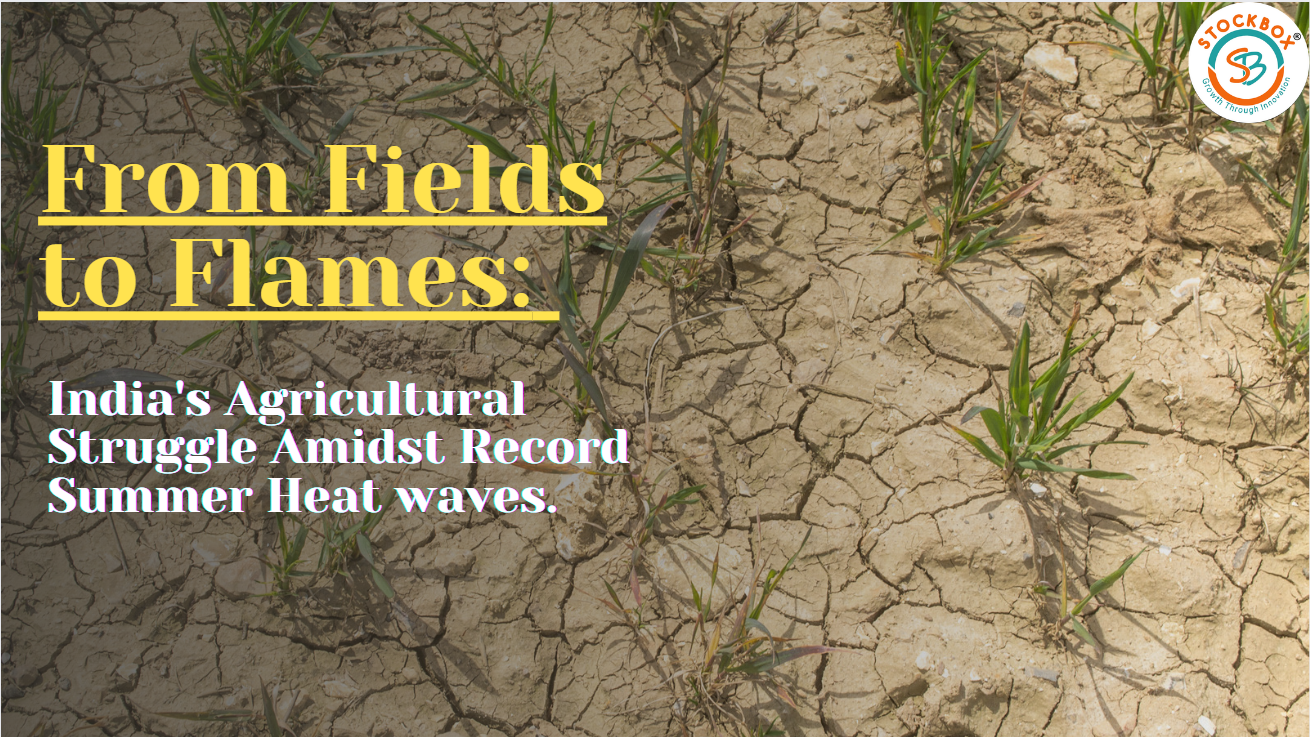India is baking in the sun as the country experiences record summertime temperatures. India is struggling with the piercing truth of climate change as the mercury surges to previously unheard-of levels. The intense heat waves are affecting every region, from crowded metropolises to rural heartlands. The serious effects on agriculture, public health, and daily life present an obvious indication of the necessity for immediate action.
With this backdrop let’s look at various concerns that record-breaking summer are having on Indian agriculture sector.
Reduced Crop Yield: Crop yields may be harmed by soaring temperatures. Increased water needs, decreased photosynthesis, and increased diseases and pest susceptibility are all effects of excessive heat stress. This all may cause reduced agricultural production that can have an impact on farmer earnings and the affordability of food.
Water Scarcity: As agriculture depends greatly on monsoon rainfall in India, water shortage is a major problem for farmers of the country. This problem gets intensified due to changes in precipitation patterns brought on by warming temperatures. Such changes causes more frequent periods of drought and erratic monsoons.
Changing Pest Dynamics: Climate change and rising temperatures can affect how diseases and pests behave and spread. Winters that are warmer encourage bugs to live and thrive, endangering crops. New pests and illnesses have already been discovered by farmers, such as the Fall Armyworm, which severely damage maize harvests and caused huge financial losses.
Crop Pattern Changes: Crop patterns may also need to be altered as a result of climate change. As because of the unfavorable weather or a lack of water, some crops might become less lucrative in some areas.
Vulnerability of Small Farmers: Small-scale farmers, who make up a sizable share of India’s agricultural labour, are particularly sensitive to the effects of climate change. Their inability to access resources, finance, and technology hinders their ability to adjust to shifting circumstances. Crop failures brought on by the climate can make people even more food insecure and poor.
Ecosystem disruptions: Pollinators, soil quality, and biodiversity are all impacted by climate change on ecosystems. Crop reproduction can be hampered, and yields can be decreased, by interruptions in pollination cycles brought on by unpredictable weather. Crop health may be impacted by variations in soil moisture content and nutrient availability.
Food Security Issues: With over 1.4 billion population, India faces tremendous difficulties in providing for its population’s food security. The cost and accessibility of food may be threatened by climate change-related disturbances to the farming industry, thereby worsening hunger and other food-related problems.
In conclusion India must embrace climate-smart agricultural methods, make investments in robust infrastructure, encourage sustainable water management, improve training and education for farmers, and create early warning systems for weather-related dangers in order to reduce these concerns. Technology developments, global cooperation, and research may all be extremely important in reducing the effects of worldwide warming on Indian agriculture.

